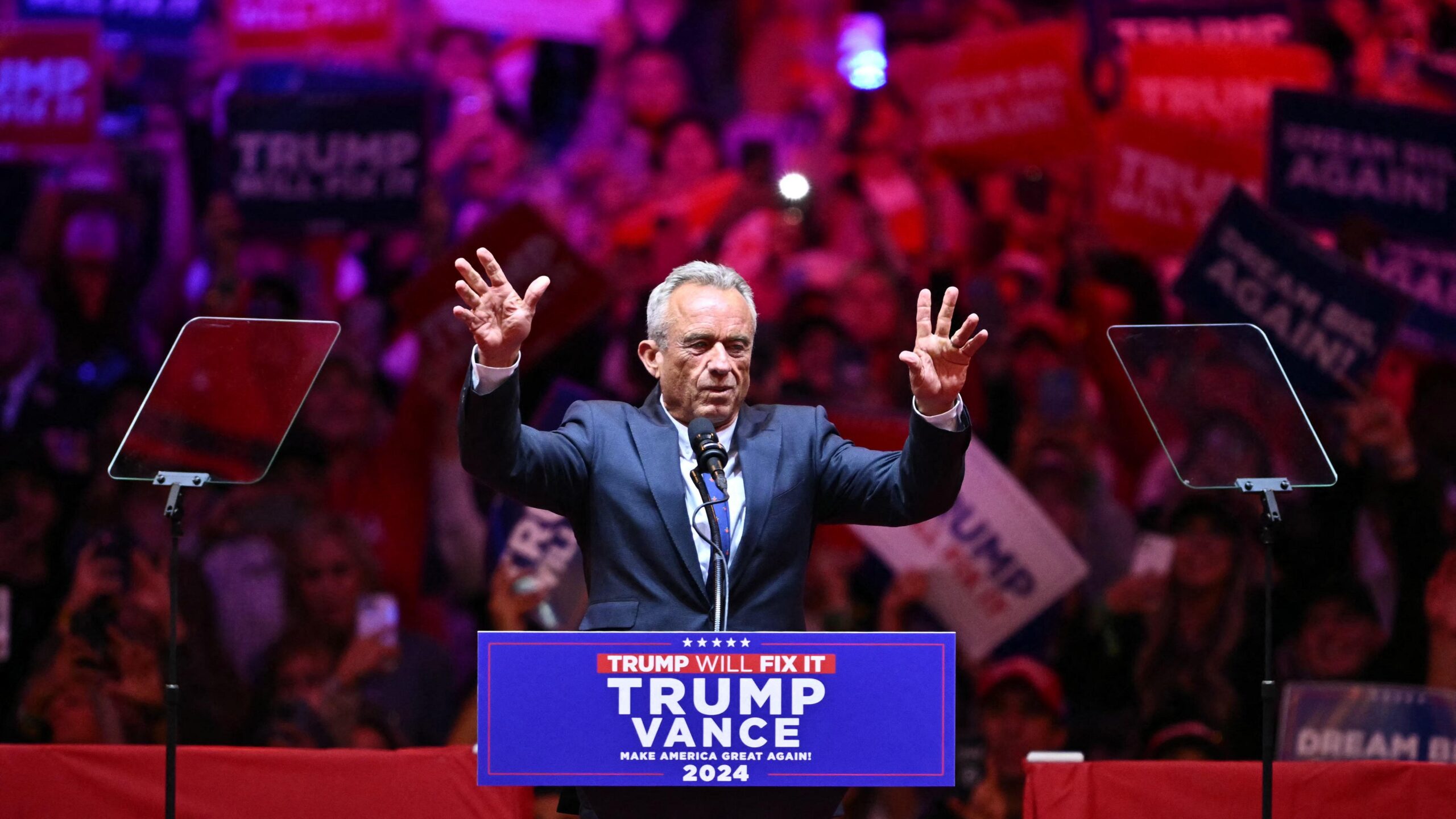Donald Trump Vows to Let Robert F. Kennedy Jr. ‘Go Wild on Health’ If Elected
In a surprising turn of events, Donald Trump, the Republican nominee for the 2020 presidential election, has made a bold promise to let Robert F. Kennedy Jr. “go wild on health” if he is elected. As the Trump campaign continues to push its agenda, this unexpected endorsement has left both supporters and critics wondering about the implications.
Robert F. Kennedy Jr., a prominent environmental lawyer and vaccine critic, has been a long-standing advocate for causes related to public health and environmental protection. His controversial views on vaccines have gathered immense attention over the years, raising eyebrows within the scientific community.
Trump’s endorsement reflects a shift in his approach towards health-related policies. In the past, the president has been supportive of the pharmaceutical industry and has expressed doubts about potential vaccine risks. By allowing Kennedy to “go wild on health,” Trump is signaling a departure from conventional norms and a readiness to challenge established beliefs in the medical field.
The president’s promise to let Kennedy “go wild on health” raises concerns for many experts and critics. The scientific consensus firmly supports the efficacy and safety of vaccines, and the promotion of misinformation regarding their potential harms poses risks to public health. It is important to note that Kennedy’s views on vaccines have been widely discredited, as numerous studies have debunked the claims he has made.
Trump’s endorsement of such controversial figures may be seen by some as a direct attack on the scientific community. Critics argue that allowing Kennedy to exert significant influence over health policies could undermine the progress made in public health over the years. They fear that this move may lead to the spread of misinformation, jeopardizing efforts to combat vaccine-preventable diseases and other public health challenges.
Supporters, on the other hand, see this as an opportunity for alternative viewpoints to be heard. They argue that a diversity of opinions fosters a healthy democracy and encourages critical thinking. By allowing Kennedy to have a more significant role in shaping health policies, they hope for a more comprehensive and balanced approach to public health.
However, it is crucial to evaluate these claims in the context of scientific evidence. The consensus among experts is that vaccines have been instrumental in reducing the prevalence of numerous deadly diseases, preventing countless unnecessary deaths. Public health policies should be guided by rigorous scientific research and evidence-based practices, rather than personal beliefs or unsubstantiated claims.
As the 2020 presidential election draws nearer, Trump’s vow to let Kennedy “go wild on health” should inspire critical analysis of his approach to public health. It raises important questions about the role of scientific expertise and evidence-based decision-making in shaping policies that directly impact the well-being of the nation.
The future of public health remains at stake, so it is essential to prioritize the voices of qualified experts, backed by sound scientific research. While accommodating alternative viewpoints can sometimes be valuable, it is crucial to ensure that public health policies are grounded in accurate information and validated evidence.
Ultimately, the responsibility falls on the voters to elect leaders who will prioritize the health and well-being of the nation above all else. The outcome of the election will play a significant role in determining the future direction of health policies and the approach towards science-based decision-making.

